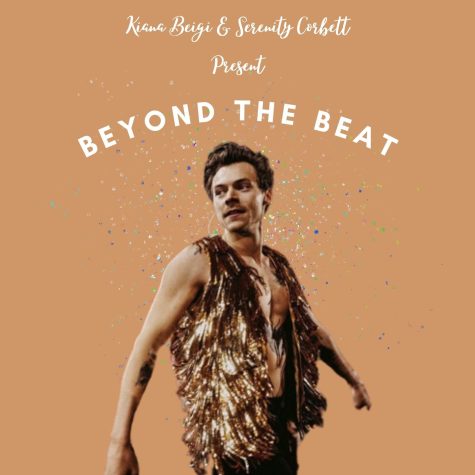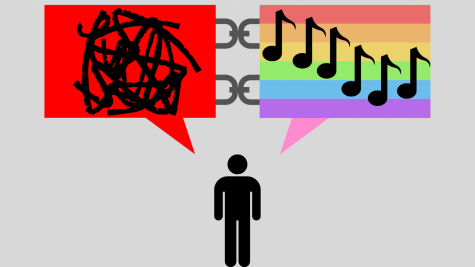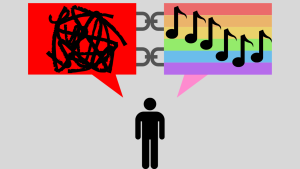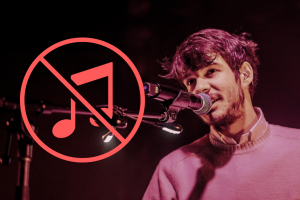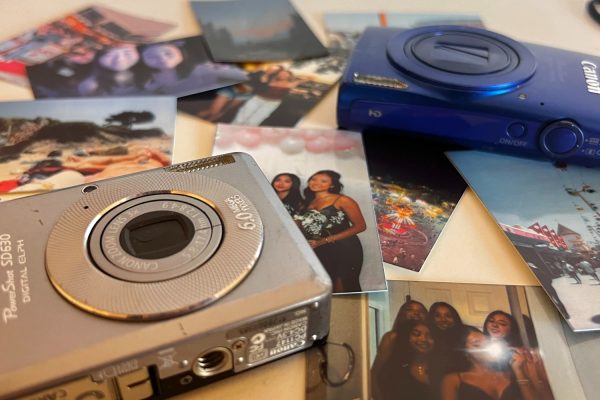Opinion: It’s okay to enjoy music by problematic artists
October 21, 2022
Too often, we discover songs we love just to find out that terrible people created them.
Most recently, news of sexual assault charges against indie artist Alex O’Connor, professionally known as Rex Orange County, reminded the world that an artist’s music doesn’t necessarily reflect what kind of person they are.
Fans loved O’Connor’s comforting and wholesome music style, and many felt utterly shocked and betrayed. Just a month ago, his songs were a pillar of light, but now, they evoke guilt and repulsion.
The unfortunate truth is that cases like O’Connor’s are innumerable. Many high-profile artists are lacking in some way: Kanye West, Lana Del Rey, Justin Bieber, and even classic favorites like Michael Jackson have been accused of varying degrees of problematic behavior and subsequently “canceled” by the public.
That didn’t stop them from topping the charts; despite the controversies, people continue to listen to their music.
There is an ongoing conversation surrounding whether a creator’s character should affect people’s perception of the things they produce. Many call for the separation of art from the artist— essentially, to appreciate an artist’s work without the influence of their actions or personal character.
“I don’t think it should be judged solely based on what kind of person the artist is,” said Jasmine Randhawa, a junior at Carlmont. “It’s not like artists are saints. Their job is to make music. It’s not really their fault people choose to put them on a pedestal.”
Their job is to make music. It’s not really their fault people choose to put them on a pedestal.
— Jasmine Randhawa
Others point out that listening to a bad person’s music is inherently supporting them. They point out that artists become successful because they have a large audience, arguing that problematic people do not deserve success, profit, or a platform to influence others.
However, people are not obligated to cut off every artist that doesn’t align with their own worldview or moral principles, nor must they pay attention to the personal lives of every artist they listen to.
Enjoying a song does not equate to supporting the actions of its creator. The fact is, most casual listeners don’t care what kind of person is making their favorite tracks. Such indifference towards the creator means an artist’s misconduct has no real influence on their audience as long as their music does not reflect it.
Additionally, there is a difference between casual listening compared to actions like buying merch, attending a concert, or collecting albums. One individual makes nearly no impact on streaming revenue: Apple Music pays $0.01 per stream, Amazon Music pays $0.004, and Spotify as little as a meager $0.0033.
If even the three cents for ten streams causes a guilty conscience, other options could be searching for lyric videos or audios on social media platforms.
Ultimately, it’s a personal choice whether to continue listening to an artist despite knowing of their problematic actions. The question is whether the enjoyment outweighs the guilt, and for many, it does.
“It’s important to acknowledge their wrongdoings, but that doesn’t mean you’re obligated to stop listening to their songs entirely,” Randhawa said.
Society must also recognize the inconsistencies in what constitutes “problematic.” The Big List of Problematic Artists and Songs compiled by Revolutionary Exchange Production includes transgressions ranging from Niki Minaj spreading vaccine misinformation to Elvis Presley’s grooming and pedophilia. There is clearly a line between canceling public figures over trivial matters and ensuring murderers or sex offenders receive proper punishment for their crimes.
At the end of the day, individuals have the right to judge each case for themselves. It is unnecessary to give up a good song just to heed societal pressure when public opinion swings against the artist.


